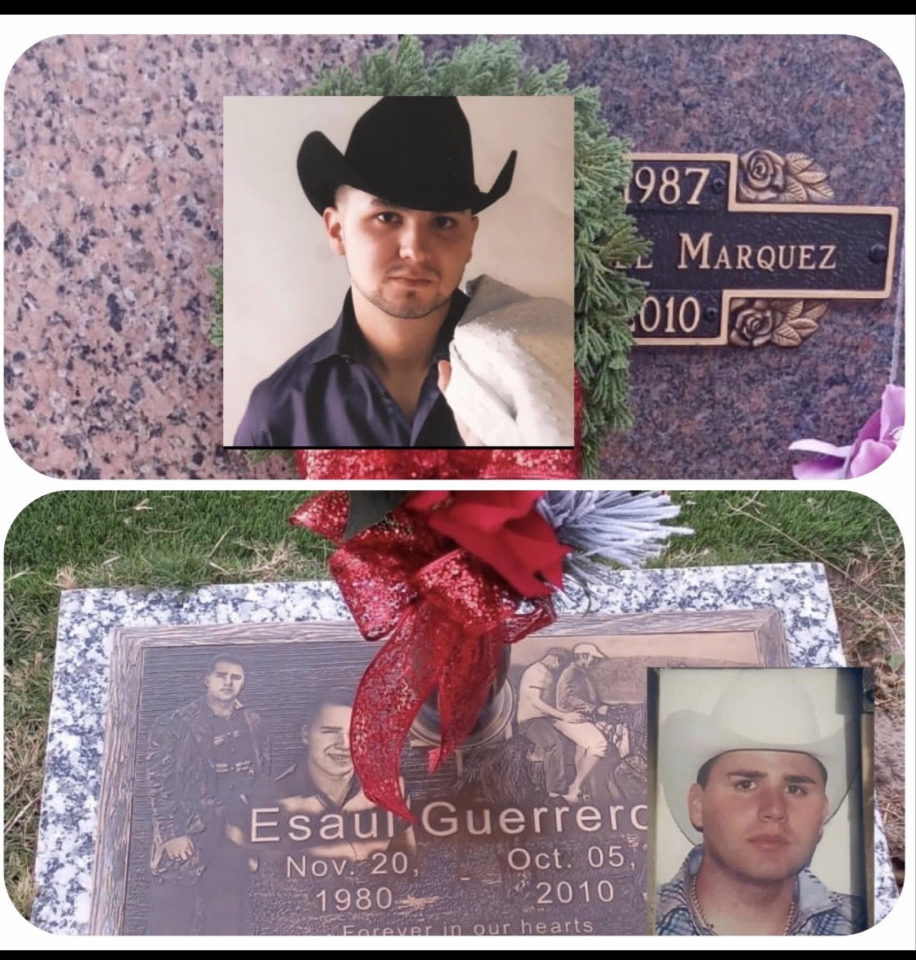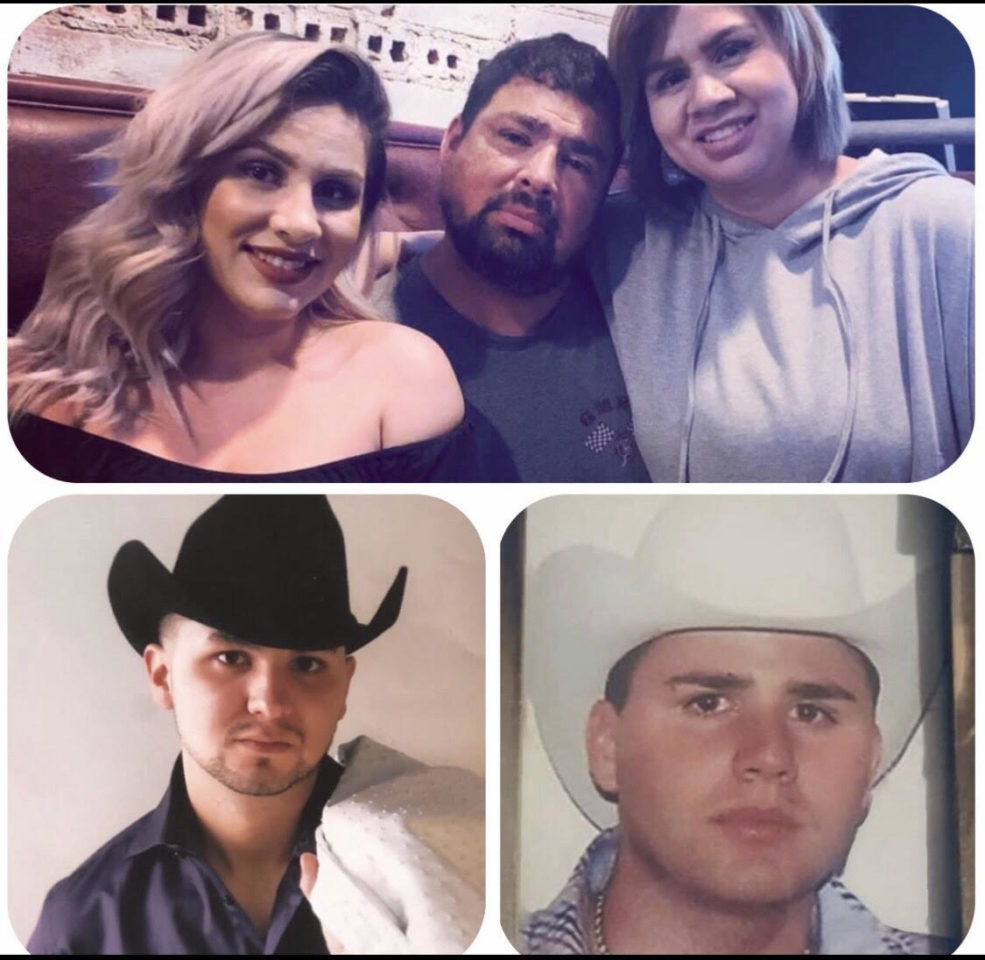In 1978, 18-year-old Diana Marquez and her family moved from Mexico to the U.S., settling in Nebraska. She could barely speak English, using films and TV shows to help teach her. Two years later, she met her eventual husband, Mario, before moving to El Paso, Texas in 1987. She had hoped to use the degree she earned while living in Mexico. However, forced to make ends meet, the duo took whatever jobs they could find, working as meat cutters at a processing plant.
“Not many people last long,” she said of the job, “But we had a necessity.”
According to the Feds, Mario also turned to cannabis distribution, netting him a 13-year sentence on cannabis conspiracy charge in 1991. With three children, including an eight-month-old, at the time of the arrest, Marquez turned to the U.S. government. Through assistance programs, she obtained support for the children and her education. While her husband was in prison, Marquez earned her GED, then a degree in bookkeeping. She’d use the continued education to start a career as a Texas Alcohol Beverage Commission compliance officer in 2000.
“I was so proud of myself,” she recalled.

Mario got back into pot sales when he returned from prison in December 2002. Marquez claims she was unaware of his dealings. Upon his release, the Feds deported Marquez-Ramos to Mexico, but he illegally crossed back into the U.S. sometime after. Once back, he worked on his family’s farm, along with his brother Hector, raising horses. The job took them to California for races, often coming home with substantial paydays. Marquez claims she asked to go but was always rebuffed and was never invited.
She claims that Mario would say, “This is men’s business.”
Marquez said her husband had similar approaches to life outside of the home, often leaving Diana behind when he went to clubs with friends. She didn’t appreciate the treatment but feared speaking up and ending her second marriage. She chalked his attitude up to a macho bravado.
“I wanted to have a stable marriage, so I never spoke up,” Marquez said.
Feds allege that the horse farm was a hub for trafficking pot. The brothers and other members of the organization were also alleged to have conspired to commit the murder of a woman, Maria Elidia Liuzza, in Juarez, Mexico, in 2005.
As the heat grew, Marquez became aware of the allegations from her colleagues. They also began to clue her in on potentially grave legal results for herself. Still, she remained confident after two subsequent searches of her house didn’t result in any charges.
“Why should it affect me? I haven’t done anything wrong,” Marquez remembered.
That didn’t turn out to be the case the third time. In August 2005, the mother of three opened the door to have agents immediately place her under arrest. Marquez was not tried for violent activities. Instead, she was indicted for several nonviolent crimes, including conspiracy to import and distribute 1,000 kilograms or more of pot, money laundering and other illegal monetary transactions.
Still, Marquez was not afraid of being found guilty. Steadfast in her innocence, she refused a deal that would see her admitting guilt to money laundering. Legal counsel warned her that an unwillingness to play ball with the Feds could result in the maximum sentence. Marquez thinks she further upset agents by demonstrating her tax regulation knowledge when questioned. Her confidence ran so high that she did what many defendants don’t do at their trial—testify on her behalf.
It’s unclear what, if any, of Marquez’s choices impacted her verdict or sentence. Though, many subjects profiled in this series have indicated similar feelings about their cases and sentencing. What was clear was that she was ultimately sentenced to 30 years in federal prison. Once a source of immense pride, her state job and badge were replaced by a prison-issued uniform and ID number.
According to Marquez, the sting of the verdict was only part of the pain. “I learned so many things that my husband did while I was on trial,” she said.
Painful learning lessons continued after sentencing. Now, the first-time offender had to understand and adjust to life inside prisons like FMC Carswell in Fort Worth, Texas. She was taught early on that speaking up could get you in trouble. So, she kept her head down, avoiding threats inside. Marquez also avoided falling into violence, drugs or other trappings of the prison system.
While inside, her family life provided heartbreaking moments as well.

Hector was sentenced to life in prison, and is currently incarcerated. However, Mario is believed to have met a different fate. Instead of prison, he is believed to have made it to Mexico, where he was kidnapped in 2010. Marquez claims not to know if Mario is alive or dead today. Their 21-year-old son, Reydecel, also fled with Mario. With the father and son missing, their 29-year-old son, Esaul Guerrero, went to Mexico to find his brother. The outcome led to more tragedy. In 2012, the bodies of both of Diana’s sons were found in Mexico.
“When I came back home, I found them in the cemetery,” she said.
All the while, she longed to see her mother, now aged 92, with dementia. Diana’s remaining family equally missed her. Her daughter, Yesenia, told High Times that life without a mom led her to house hop as a minor. She also contended with mental health concerns. At one point, she was admitted to a mental health facility for treatment.
“I felt robbed of my youth,” she said of life without her parents.

Instead, she committed herself to a lifelong practice: continuing her education. She earned an office management apprenticeship. She was well-equipped to handle numerous prison office duties, including bookkeeping, banking, reconciliation and other tasks combined with her financial background.
“The manager trusted me a lot,” she said.
She also helped teach English as a Second Language despite not feeling like her English comprehension was up to the task.
“They’re always relying on us to do the work,” she said of prison programs.
Pain from prison and family life did not deter Marquez from giving up on getting home. Nor did rejected clemency pleas from former Presidents Barack Obama and Donald Trump. Through it all, she pushed on.
After 11 years with a spotless record, she was deemed a low-level prisoner and moved to Federal Prison Camp Bryan in Texas. She stayed at the camp until the COVID-19 pandemic and Marquez’s physical condition allowed her to return home in May 2020 as part of the CARES Act. Per her release terms, she kept an ankle bracelet on at all times while adhering to other requirements, including check-ins with a halfway house.
In late December 2021, her ankle monitor was removed after receiving a compassionate release. Marquez reports that she is still adjusting to life without a regularly vibrating device on her ankle. Her movement is still limited to within a specific area of Texas. As of early January 2022, she was waiting for her driver’s license. Despite the remaining steps and the years to get here, the Marquez family calls Diana’s return a long overdue win.
Marquez now hopes to advocate for the freedom of friends and family like advocates like CAN-DO Clemency did for her. “It’s an ongoing fight,” said Marquez. She added, “We’re the voices for them in this ongoing battle.”
The post Most Affected: Former State Employee Diana Marquez appeared first on High Times.




0 DL LiNKS:
Post a Comment
Add yours...